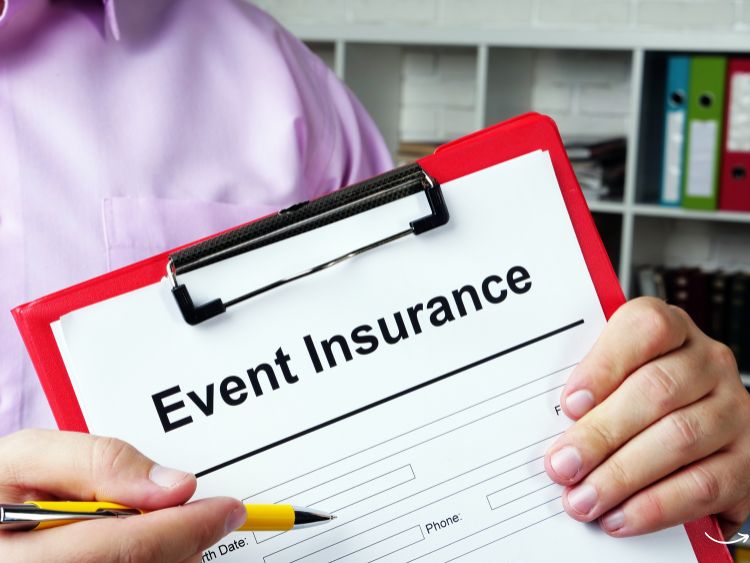Picture this: you’re all set up at a bustling event, your booth is looking fantastic, and you’re ready to make some sales. But suddenly, an unexpected incident occurs—a storm damages your display, or perhaps a customer trips over your extension cord. These unforeseen mishaps can lead to significant financial losses if you’re not adequately prepared. That’s where event insurance for vendors comes into play. This comprehensive guide will walk you through everything you need to know about event insurance, ensuring you’re protected no matter what comes your way.
What is Event Insurance for Vendors?
Event insurance for vendors is a type of coverage specifically designed to protect those who sell goods or services at events. Whether you’re participating in a craft fair, a farmers’ market, or a large trade show, having the right insurance can save you from potential financial ruin. This insurance covers various risks, including property damage, liability, and even loss of income due to unforeseen cancellations.
Why Do Vendors Need Event Insurance?
Protecting Your Investment
As a vendor, you invest a lot in your business. From the products you sell to the equipment you use, your assets are valuable. Event insurance helps protect this investment by covering the costs associated with damage or loss. Imagine the peace of mind you’ll have knowing that, should anything go wrong, you’re not financially responsible for replacing everything out of pocket.
Liability Coverage
Accidents happen, and when they do, you could be held liable. If a customer injures themselves at your booth, you might be responsible for their medical bills. Liability coverage included in event insurance helps cover these costs, protecting you from potentially devastating legal fees.
Event Cancellations
Events can be canceled for a myriad of reasons—bad weather, venue issues, or even a global pandemic. If you rely on these events for your income, a cancellation can be catastrophic. Event insurance can provide coverage for lost income, ensuring you’re not left high and dry if an event doesn’t go as planned.
Types of Event Insurance for Vendors
General Liability Insurance
This is the most common type of event insurance. It covers bodily injury and property damage that might occur at your booth. For example, if someone trips over your display and gets injured, general liability insurance would cover their medical expenses.
Product Liability Insurance
If you’re selling products, product liability insurance is crucial. It protects you if your product causes harm to a customer. For instance, if someone gets sick from food you sold or injured by a product you made, this insurance would cover the resulting claims.
Property Insurance
This type of insurance covers damage or loss of your property. Whether it’s a tent, table, or your inventory, property insurance ensures you’re compensated if something happens to your belongings.
Cancellation Insurance
Cancellation insurance is a lifesaver if an event gets canceled. It covers your lost income and any non-refundable expenses you’ve incurred. This means you won’t be left out of pocket if an event doesn’t happen.
Inland Marine Insurance
Don’t let the name fool you—this insurance isn’t just for maritime activities. Inland marine insurance covers your property as it’s transported to and from events. If your goods are damaged or stolen in transit, this insurance has you covered.
How to Choose the Right Event Insurance
Assess Your Risks
The first step in choosing the right event insurance is to assess your risks. Consider the types of events you attend, the value of your inventory, and the potential liabilities you might face. This will help you determine the types of coverage you need.
Compare Policies
Not all insurance policies are created equal. Take the time to compare different policies and providers. Look at what each policy covers, the limits of coverage, and the cost. It might be tempting to go with the cheapest option, but make sure it provides adequate coverage for your needs.
Read the Fine Print
Insurance policies can be full of jargon and fine print. Make sure you read and understand the terms and conditions of any policy you’re considering. Pay attention to exclusions and limitations to avoid any surprises down the road.
Consider Bundling
If you attend events regularly, consider bundling your event insurance with other business insurance policies. Many providers offer discounts for bundling, which can save you money in the long run.
FAQs about Event Insurance for Vendors
What does event insurance for vendors typically cover?
Event insurance typically covers general liability, product liability, property damage, and cancellations. It can also include inland marine insurance for items transported to and from events.
Is event insurance mandatory for vendors?
While not always mandatory, many event organizers require vendors to have insurance. Even if it’s not required, it’s a smart investment to protect yourself from potential risks.
How much does event insurance for vendors cost?
The cost of event insurance varies based on factors such as the type of coverage, the value of your inventory, and the events you attend. On average, vendors can expect to pay between $100 and $500 per event for comprehensive coverage.
Can I get a single event insurance policy, or do I need annual coverage?
You can choose between single event insurance and annual coverage, depending on how often you attend events. If you participate in multiple events throughout the year, an annual policy might be more cost-effective.
What should I do if I need to file a claim?
If you need to file a claim, contact your insurance provider as soon as possible. Provide all necessary documentation, including photos of the damage and any receipts or contracts. Your provider will guide you through the claims process.
Conclusion
In the unpredictable world of events, having event insurance for vendors is a no-brainer. It protects your investment, covers liabilities, and ensures you’re not left financially stranded if things go awry. By understanding your risks, choosing the right coverage, and keeping yourself informed, you can focus on what you do best—running your business and making those sales.
Authoritative Links for Further Reading
- https://www.insuranceproviders.com/event-insurance-for-vendors
- https://www.trustedchoice.com/event-insurance
- https://www.thebalance.com/event-insurance-for-vendors-5225160
- https://www.insureon.com/small-business-insurance/event
- https://www.eventmanagerblog.com/event-insurance-guide
With this guide, you’re now equipped with the knowledge to navigate the world of event insurance confidently. Remember, it’s better to be safe than sorry—invest in event insurance and protect your business from the unexpected.







